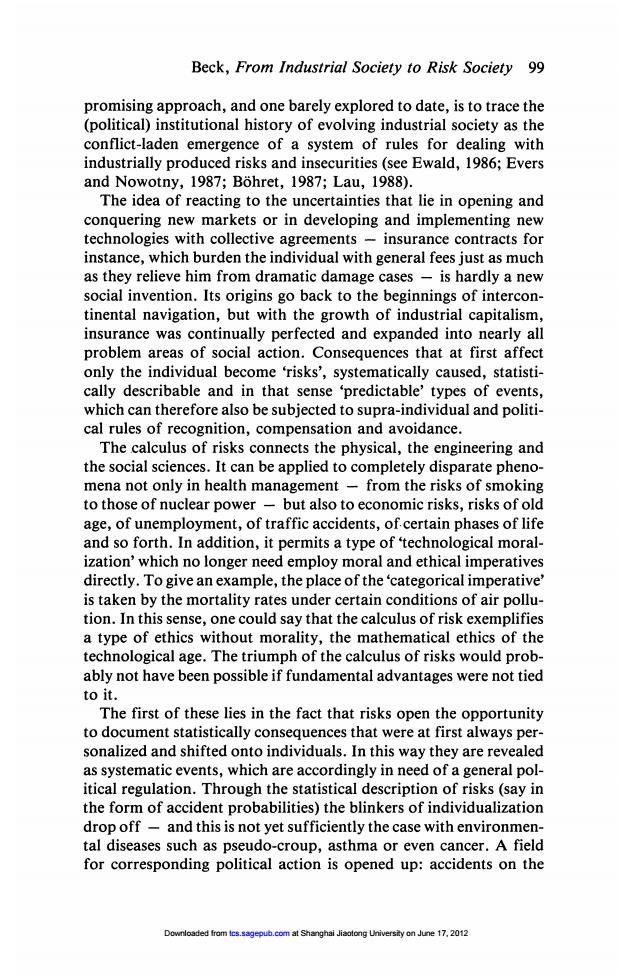正在加载图片...

Beck,From Industrial Society to Risk Society 99 promising approach,and one barely explored to date,is to trace the (political)institutional history of evolving industrial society as the conflict-laden emergence of a system of rules for dealing with industrially produced risks and insecurities (see Ewald,1986;Evers and Nowotny,1987;Bohret,1987;Lau,1988). The idea of reacting to the uncertainties that lie in opening and conquering new markets or in developing and implementing new technologies with collective agreements-insurance contracts for instance,which burden the individual with general fees just as much as they relieve him from dramatic damage cases-is hardly a new social invention.Its origins go back to the beginnings of intercon- tinental navigation,but with the growth of industrial capitalism, insurance was continually perfected and expanded into nearly all problem areas of social action.Consequences that at first affect only the individual become 'risks',systematically caused,statisti- cally describable and in that sense 'predictable'types of events, which can therefore also be subjected to supra-individual and politi- cal rules of recognition,compensation and avoidance. The calculus of risks connects the physical,the engineering and the social sciences.It can be applied to completely disparate pheno- mena not only in health management -from the risks of smoking to those of nuclear power-but also to economic risks,risks of old age,of unemployment,of traffic accidents,of certain phases of life and so forth.In addition,it permits a type of 'technological moral- ization'which no longer need employ moral and ethical imperatives directly.To give an example,the place of the 'categorical imperative' is taken by the mortality rates under certain conditions of air pollu- tion.In this sense,one could say that the calculus of risk exemplifies a type of ethics without morality,the mathematical ethics of the technological age.The triumph of the calculus of risks would prob- ably not have been possible if fundamental advantages were not tied to it. The first of these lies in the fact that risks open the opportunity to document statistically consequences that were at first always per- sonalized and shifted onto individuals.In this way they are revealed as systematic events,which are accordingly in need of a general pol- itical regulation.Through the statistical description of risks (say in the form of accident probabilities)the blinkers of individualization drop off-and this is not yet sufficiently the case with environmen- tal diseases such as pseudo-croup,asthma or even cancer.A field for corresponding political action is opened up:accidents on the Downloaded from lcs.sagepub.com at Shanghai Jiaotong University on June 17,2012Downloaded from tcs.sagepub.com at Shanghai Jiaotong University on June 17, 2012